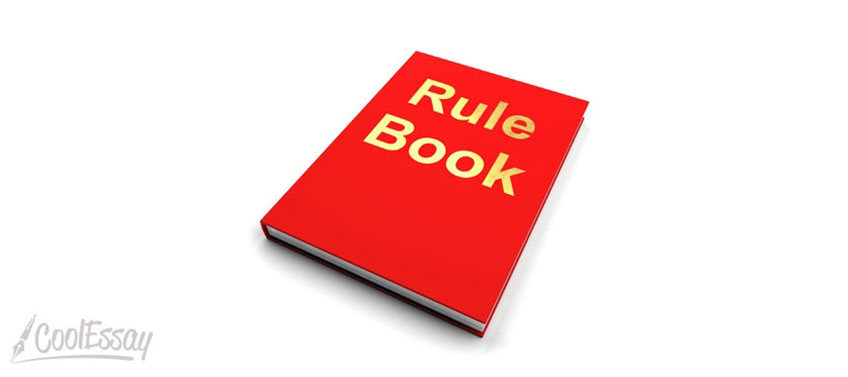
If you have ever been struggling with composing correctly and appropriately written adjectives in three forms of theirs, this simple guide is for you. As we know, all adjectives may have inflections. However, not all of them will change their spelling when forming a new level of comparison. Therefore, there are regular and irregular adjectives that look different and as a result should be treated differently.
To bear in mind how an ordinary adjective can be presented in a sentence in all possible ways, let’s take a look at the types of its usage:
Adjective as an Attributive
It is the most common usage of adjectives (the name derived from Latin and means “additional noun”) as well as the easiest one. Usually formed as a word before the main noun e.g. “What a beautiful cat!” or “He is a really nice man”.
Predicative Adjectives

Such adjectives modulate the noun (or a pronoun) with some method of connection which is usually a copula and is directly referred to the verb as it is its integral part. E.g. “He is really nice” or “The book makes me bored”.
Adjective as a Nominal Element
Based on the name of the adjective, it may be freely referred to a noun position. If, for example, the noun is omitted, an adjective takes its place, meaning both attribute and noun at the same time.
E.g. “Do you want a black or a blue pen? I prefer black.” In the last case, “black” is a noun and an adjective – a nominal adjective.
“The sick should at hospitals be treated better the medical care can do nowadays” – The sick (people) meaning is implied here and as a noun is omitted, an adjective takes its place.
Adjective Phrases
The phrases and expressions consisting of two and more components, though the first place takes adjective with a few complements, like “world known company” or “extremely important meeting”. And, they are uncomparable, which means, they cannot be complemented with more, most or endings like -er or -est.
Participle Adjectives
The participles that are given in a sentence as adjectives can be recognized with the -ed or -ing ending:
E.g. “Such an intriguing story has captured his attention right away”.
Basic Rules for Forming Comparatives and Superlatives

Not all rules apply to all adjectives. These are usually divided into the following categories to make it easier for you to comprehend the logic of their forming. The scheme will be presented as following:
Positive – comparative – superlativeComparative form is used when only two things are being taken into account as objects for investigation and comparison. When three and more things are being compared or when there is a need in expressing the excellence of one thing over other others, the superlative for can be freely used.
One-Syllable Adjective
The rule for one-syllable adjectives is a piece of cake but actually makes the learner get the clue about the functioning of comparatives and superlatives for one word and by learning the basics you already win half of the battle. Also, bear in mind, that adjectives belong to this category that have a single consonant ending and in that way, it doubles in comparative form:
- Big – bigger – biggest;
- Close – closer – closest;
- Thin – thinner - thinnest.
Two-and More Syllable Adjectives
Long words and those having two and more syllables can be formed only with the help of the words “more” for a comparative method and “most” for superlative one. Adjectives with two syllables may also follow the -er and -est rule or be used with “more” and “most”:
- Grateful – more grateful – most grateful;
- Hectic – more hectic – most hectic;
- Interesting – more interesting – most interesting.
Two-Syllable Adjective With -y in the Ending
- Lovely -lovelier – loveliest;
- Merry – merrier – merriest;
- Busy – busier – busiest.
Two-Syllable Adjective with Endings -le, -e, -ow, -or
- Dense – denser – densest;
- Narrow – narrower – narrowest;
- Idle – idler – idlest.
Exceptions

Don’t you even try to understand why and how exactly they differ – the words are just to learn by heart and remember till your last breath:
- good – better – best;
- little – less – least;
- far – farther – farthest;
- far – further – furthest;
- many – more – most;
- bad – worse – worst.
Adjectives That Cannot Form Comparatives
When speaking about comparatives and superlatives of adjectives, one should realize when they can be used and when it is impossible to form any comparative form of an adjective. First of all, it is absolutely impossible to apply comparatives to the absolute state or condition. Even the word “absolute” speaks for itself – no comparisons! Also, the adjectives with prefix un- belong to this category such as: unnatural, unbroken etc. Among others, we may list a few other exceptions as:
- perfect, ideal, frozen, natural, fatal, classic, true, false, real, wooden, only, final, complete, impossible, dead, alive, sick, unique etc.
They all indicate a state of a person or a condition and are illogical when forming comparatives with them. And one more thing, in case these forms seem weird and incorrect to you at first, try to get used to them as soon as possible as they will surely help you sound versed and smart.